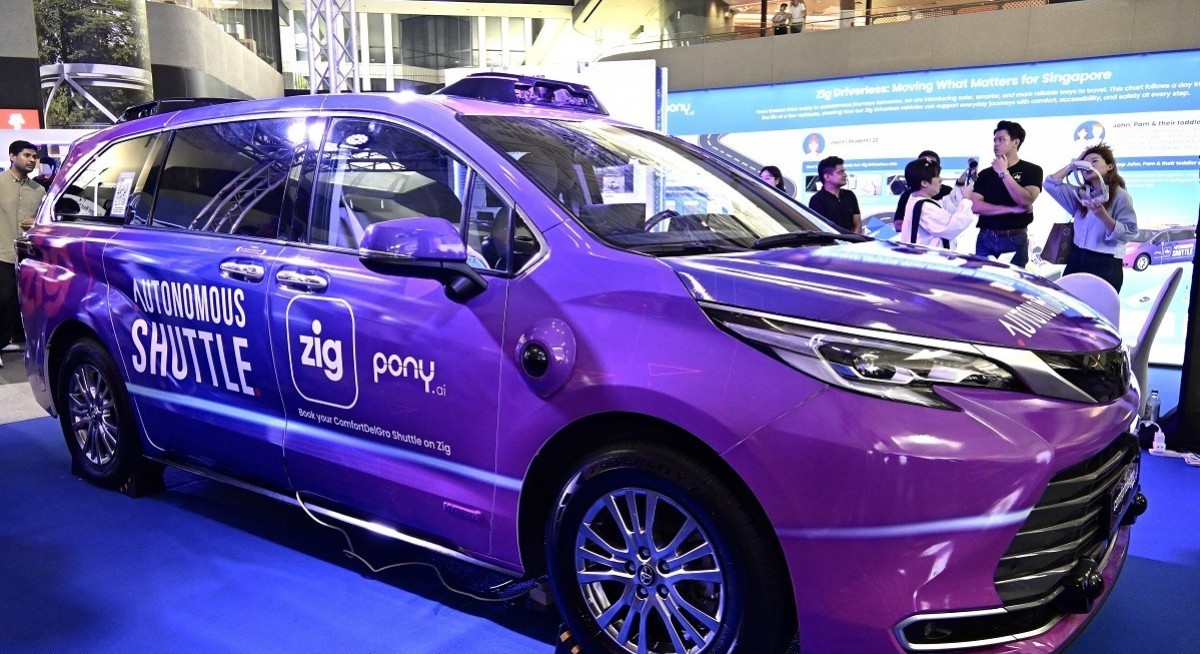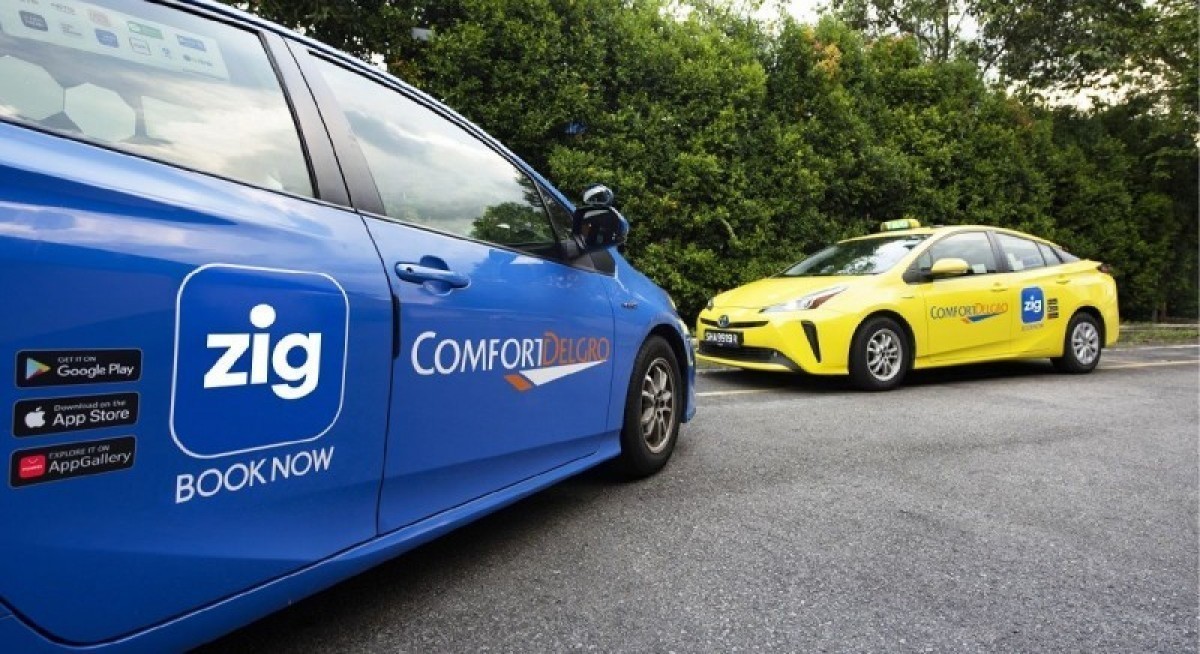C52 has become one of the largest land transport companies in the world. Leveraging its history, global expertise and industry insight, the group is looking to design and innovate effective, safe and reliable transport systems for millions of passengers around the world.
“We remain driven by our passion to deliver great journeys for all our customers,” says ComfortDelGro’s Managing Director and Group CEO Cheng Siak Kian (SK). “We are also invested in driving long-term sustainable value creation for our shareholders, customers, partners, and the communities that we serve. This means not just creating great journeys today but remaining committed to the same vision in the future.”

See also: PropNex soars, capturing greater market share amid challenging real estate climate
See also: 17 years in, CDL continues to pioneer sustainability reporting developments
 ComfortDelGro’s wholly owned subsidiary, Metroline, operates 100 routes across London, Manchester and Hertfordshire, carrying more than 1 million passengers in London each day. Photo: ComfortDelGro
During the group’s 1HFY2024 results briefing on Aug 14, the group said that the shortage is not unique to it and that it is keeping a close watch on the situation. At the time, group deputy CFO Chris White acknowledged that drivers, the backbone of the group’s operations, are crucial to ComfortDelGro’s business.
While the group is actively managing its recruitment strategy and looking at incentives and welfare to attract more drivers, it is also investing in technologies like smart infrastructure, autonomous vehicles (AV) and artificial intelligence (AI) to future-proof its business and support the optimisation of transportation flow in urban environments.
In August, ComfortDelGro announced that it signed a memorandum of understanding (MOU) with AV technology group Pony.ai to carry out large-scale commercial robotaxi operations in China and potentially around the world. “While the technology is still in its early days, it is a capability that we want to build up for our point-to-point business in the long term,” says SK. ComfortDelGro is using AI for predictive analytics to enhance operational efficiencies and improve the customer experience.
Nonetheless, it recognises that taxis still play an important role in the industry and remains focused on ensuring the welfare of its cabbies and private-hire vehicle (PHV) drivers so that they can secure sustainable and consistent earnings for their services.
“We are proud of the longstanding partnership that we have with our cabbies and commitment to our customers by providing a reliable supply of drivers to underserved areas and off-peak hours,” says SK. “While we’re monitoring competition closely, our top priority is to grow our businesses, including our PHV business profitably.”
ComfortDelGro’s wholly owned subsidiary, Metroline, operates 100 routes across London, Manchester and Hertfordshire, carrying more than 1 million passengers in London each day. Photo: ComfortDelGro
During the group’s 1HFY2024 results briefing on Aug 14, the group said that the shortage is not unique to it and that it is keeping a close watch on the situation. At the time, group deputy CFO Chris White acknowledged that drivers, the backbone of the group’s operations, are crucial to ComfortDelGro’s business.
While the group is actively managing its recruitment strategy and looking at incentives and welfare to attract more drivers, it is also investing in technologies like smart infrastructure, autonomous vehicles (AV) and artificial intelligence (AI) to future-proof its business and support the optimisation of transportation flow in urban environments.
In August, ComfortDelGro announced that it signed a memorandum of understanding (MOU) with AV technology group Pony.ai to carry out large-scale commercial robotaxi operations in China and potentially around the world. “While the technology is still in its early days, it is a capability that we want to build up for our point-to-point business in the long term,” says SK. ComfortDelGro is using AI for predictive analytics to enhance operational efficiencies and improve the customer experience.
Nonetheless, it recognises that taxis still play an important role in the industry and remains focused on ensuring the welfare of its cabbies and private-hire vehicle (PHV) drivers so that they can secure sustainable and consistent earnings for their services.
“We are proud of the longstanding partnership that we have with our cabbies and commitment to our customers by providing a reliable supply of drivers to underserved areas and off-peak hours,” says SK. “While we’re monitoring competition closely, our top priority is to grow our businesses, including our PHV business profitably.”
 SBS Transit operates the Downtown Line and North East Line, the former is regarded as one of the world’s most reliable metros. Globally, ComfortDelGro has a fleet of over 40,000 vehicles, 317 km of total rail network (in operation and in the pipeline) and operations in 13 countries. Photo: ComfortDelGro
Sustainable and equitable mobility
The group’s focus on equity ensures that its services across all modes of transport cater to the needs of everyone, from people with disabilities to elderly passengers. For example, CDC Australia, Metroline UK and SBS Transit, the group’s subsidiaries, all have inclusivity initiatives to enhance access for users of different abilities and needs.
The group’s efforts have not gone unnoticed. ComfortDelGro has been included in the Dow Jones Sustainability Indices Asia Pacific since 2019, making it the only Singaporean transport group to achieve this recognition. This inclusion highlights ComfortDelGro’s dedication to sustainability, from fleet management to infrastructure investments.
“As a global operator, we play an important role in steering the transition towards a low-carbon economy,” says SK. “However, we recognise that we have a long way to go to achieve a sustainable and equitable transportation ecosystem and achieving these goals is not something we — or any single organisation — can accomplish alone. Building a future-ready transport ecosystem will require collaboration across the entire industry.”
SBS Transit operates the Downtown Line and North East Line, the former is regarded as one of the world’s most reliable metros. Globally, ComfortDelGro has a fleet of over 40,000 vehicles, 317 km of total rail network (in operation and in the pipeline) and operations in 13 countries. Photo: ComfortDelGro
Sustainable and equitable mobility
The group’s focus on equity ensures that its services across all modes of transport cater to the needs of everyone, from people with disabilities to elderly passengers. For example, CDC Australia, Metroline UK and SBS Transit, the group’s subsidiaries, all have inclusivity initiatives to enhance access for users of different abilities and needs.
The group’s efforts have not gone unnoticed. ComfortDelGro has been included in the Dow Jones Sustainability Indices Asia Pacific since 2019, making it the only Singaporean transport group to achieve this recognition. This inclusion highlights ComfortDelGro’s dedication to sustainability, from fleet management to infrastructure investments.
“As a global operator, we play an important role in steering the transition towards a low-carbon economy,” says SK. “However, we recognise that we have a long way to go to achieve a sustainable and equitable transportation ecosystem and achieving these goals is not something we — or any single organisation — can accomplish alone. Building a future-ready transport ecosystem will require collaboration across the entire industry.”









.jpg)
